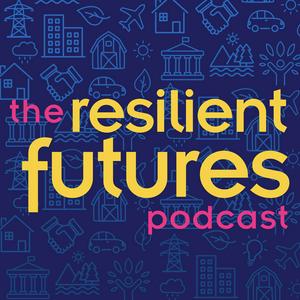What did you do during the COVID-19 social distancing era? Some of us learned to make sourdough, some of us perfected a viral whipped coffee, plenty of us did a whole lot of nothing- but this NYC subculture was busy taking notes.
Anna Bounds, a Professor of Sociology at Queens College, has felt called to teach, write, and tell stories for a long time. She's particularly passionate about urban policies that make cities better, stronger and more vibrant.
As a sociologist–but also as a New Yorker–she began attending meetings of NYC's "prepper" community: a group of people dedicated to preparing for disasters the government may not be equipped to help with, whether it's a pandemic, terrorist attack or natural disaster.
Anna clarifies: they aren't preparing for the end of the world- just whatever kind of day tomorrow might be. She's spent years (including before the pandemic) researching these groups while also learning countless skills for emergency preparation and response.
"All sorts of interesting people [were] coming together to figure out how to help each other in crisis- and it paid off."
So forget viral food trends! This episode pairs best with assembling your emergency kit (and yes, Anna has suggestions for it).
Anna's Haiku* ("A Love Letter to the City"):
Smoke clings to the sky
Hands meet through sirens and headlines
Love that doesn't flinch
(*With special thanks to Anna's 7th grade teacher)
Links:
Anna's book, Urban Preppers and the Pandemic in New York City: Class, Resilience, and Sheltering in Place: https://www.annamariabounds.org/urban-preppers
Anna's first book, Bracing for the Apocalypse: An Ethnographic Study of New York City's Urban Prepper Subculture: https://www.annamariabounds.org/book/apocalypse


